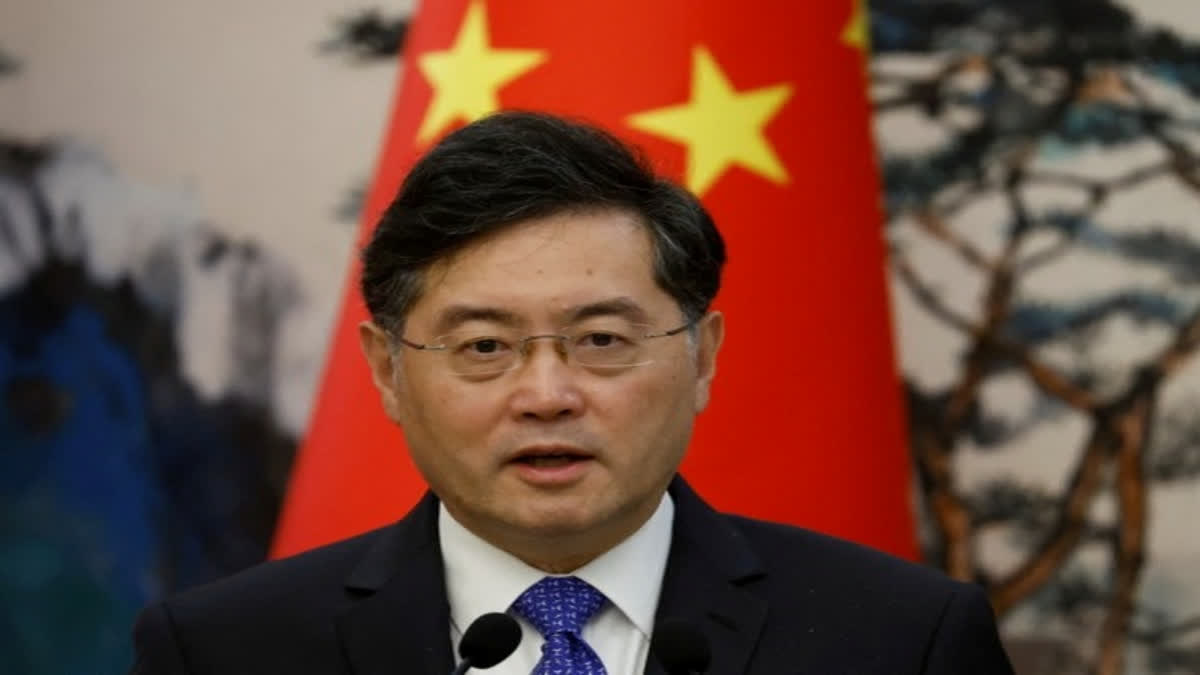New Delhi: Following the mysterious disappearance of former Chinese foreign minister Qin Gang after his removal from the post, the question that has risen is what it means for China’s diplomacy and what impact it would likely have on foreign relations, especially the India-China ties.
Recently, China's top legislature removed Qin Gang from his position as Foreign Minister and appointed Wang Yi in his place. Qin Gang considered a confidante of President Xi Jinping, was appointed foreign minister in December 2022. He has not been seen in public since June 25, when he met with Russia's deputy foreign minister Andrey Rudenko in Beijing.
ETV Bharat spoke to foreign policy analysts on how New Delhi has to deal with this black box. Professor Harsh V Pant, Director, Studies and Head of the Strategic Studies Programme at Observer Research Foundation said, "The abrupt removal of Qin Gang underscores how precarious the domestic situation is in China and how Xi Jinping’s control in authoritarianism and centralization of power is producing very inefficient outcomes for China”.
“The removal and the subsequent scrubbing of all evidence that Qin Gang even existed is quite remarkable because at one point, he was the face of China for the world and was engaging with top-level leaders including US’ Antony Blinken and suddenly he is not only not there but his mention in the official record has been scrubbed.
Therefore, the challenge is how one deals with a country like today’s China under Xi Jinping. China is almost becoming an ‘abnormal state’ in global affairs and that abnormality is kind of seen on the India-China border”, he added.
Also read: Curious case of Communist China's missing Foreign Minister: Who is Qin Gang, and why is he missing?
Professor Pant said that the removal of the Qin Gang is unlikely to change the Sino-India dynamic because India has made its position very clear and it is refusing to budge from that position. It is for China how it wants to go ahead with it but what Qin Gang’s removal underscores is how difficult it is becoming to deal with China in a normal way, he said.
Dr Srikant Kondapalli, Professor in Chinese Study at Jawaharlal Nehru University, told ETV Bharat that Qin’s removal and Wang's restoration hardly has any major changes in the foreign policy of China.
“Qin was a Xi Jinping protégé and Wang as well was groomed for long. Even though Qin and Wang had differences in policies, overall they were under Xi's guidance. Xi's tenure saw some turbulence in many fields including in the Foreign policy domain. Wang is also the Special Representative on the territorial dispute with India. Wang took a strident view of Galwan. So the frosty relations are expected to continue with India”, he said.
After Chinese President Xi Jinping, Wang now holds China's two senior foreign policy positions. He will represent both the Chinese nation and the Chinese Communist Party. Wang is usually known for his hawkish approach to foreign policy and when it comes to China-India ties, he has always tried to paint a happy picture of the relations.
However, in a recent meeting with Wang on the sidelines of the BRICS NSA meeting in Johannesburg, NSA Ajit Doval had a tough talk and reiterated that the situation along the LAC, in the Western Sector of the India-China boundary since 2020 had eroded strategic trust and the public and political basis of the relationship between the two countries.
Also read: China removes outspoken foreign minister Qin Gang and replaces him with his predecessor Wang Yi



